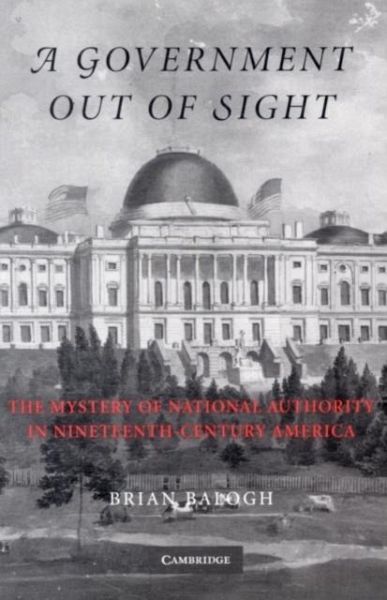
Government Out of Sight (eBook, PDF)
The Mystery of National Authority in Nineteenth-Century America

PAYBACK Punkte
11 °P sammeln!
While it is obvious that America's state and local governments were consistently active during the nineteenth century, a period dominated by laissez-faire, political historians of twentieth-century America have assumed that the national government did very little during this period. A Government Out of Sight challenges this premise, chronicling the ways in which the national government intervened powerfully in the lives of nineteenth-century Americans through the law, subsidies, and the use of third parties (including state and local governments), while avoiding bureaucracy. Americans have alw...
While it is obvious that America's state and local governments were consistently active during the nineteenth century, a period dominated by laissez-faire, political historians of twentieth-century America have assumed that the national government did very little during this period. A Government Out of Sight challenges this premise, chronicling the ways in which the national government intervened powerfully in the lives of nineteenth-century Americans through the law, subsidies, and the use of third parties (including state and local governments), while avoiding bureaucracy. Americans have always turned to the national government - especially for economic development and expansion - and in the nineteenth century even those who argued for a small, nonintrusive central government demanded that the national government expand its authority to meet the nation's challenges. In revising our understanding of the ways in which Americans turned to the national government throughout this period, this study fundamentally alters our perspective on American political development in the twentieth century, shedding light on contemporary debates between progressives and conservatives about the proper size of government and government programs and subsidies that even today remain 'out of sight'.
Dieser Download kann aus rechtlichen Gründen nur mit Rechnungsadresse in A, B, BG, CY, CZ, D, DK, EW, E, FIN, F, GR, HR, H, IRL, I, LT, L, LR, M, NL, PL, P, R, S, SLO, SK ausgeliefert werden.



